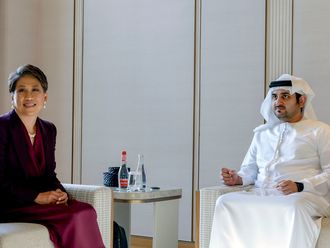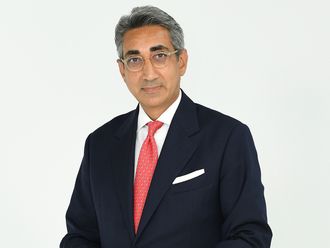Dubai: Saudi Arabia’s second-biggest bank is betting that government efforts to develop the entertainment industry, boost home-ownership and open up the role of women in the economy will fuel growth this year.
The kingdom is undergoing an economic overhaul driven by Crown Prince Mohammad Bin Salman that includes removing restrictions on cinemas, concerts and women driving and working. It also plans to subsidise home loans to expand the private-sector’s role in funding mortgages as part of the transformation plan to diversify the economy away from oil and reduce the population’s reliance on state spending.
Al Rajhi Bank is also planning to expand its corporate-lending business on optimism that businesses will start borrowing again later this year, after loans to the private sector fell in 2017, Chief Executive Officer Steve Bertamini said in an interview. Rising demand for corporate and housing loans should help Al Rajhi outperform peers in 2018, he said.
“Our goal is to outperform the industry,” Bertamini said. “Housing demand gives us confidence that we’ll be able to continue to do that, and if corporate demand begins to improve, especially if the government begins to fund some projects, we think that will be positive for the banks and also for us.”
Al Rajhi’s fourth-quarter profit was 2.45 billion riyals ($653 million), beating the highest analyst estimates as it boosted income from financing and investments.
The bank underwrote 44 per cent of all new Saudi Arabian mortgages last year and growing the home finance business is its “number one objective for retail banking,” said Bertamini, 53, who joined Al Rajhi in 2015. Previously, he was CEO of consumer banking at Standard Chartered Plc.
With Saudi Arabia’s economy expected to return to growth this year, the government’s plan to boost spending should help drive demand for corporate loans, Bertamini said. Total bank loans across the industry fell 1.1 per cent last year as the economy shrank.
Al Rajhi, which makes most of its profit from retail banking, wants to boost its market share in corporate banking by between half and one-percentage point a year. The bank’s share of corporate assets rose to 7.3 per cent at the end of last year, according to the bank’s own figures.
To do that the bank is focusing on lending to industries that deal with a lot of customers, like retail, health care and education, where it can also benefit by offering ancillary services like installing point-of-sale machines, or providing payroll services.
Al Rajhi is also looking to double the size of its female workforce to about 20 per cent by 2020, as the kingdom’s conservative society increasingly opens up to women. Saudi Arabia has said it will allow women to drive from June this year, ending a decades-long ban. In January, female fans attended official soccer matches for the first time, while more women-only gyms are opening, along with female-only car showrooms.
“Demand for autos by females should also be a driver of growth,” Bertamini said. “January saw depressed auto sales, but as women are allowed to drive and more women enter the workforce, I think you’ll see an uptake in demand for autos, and that will help household spending.”












